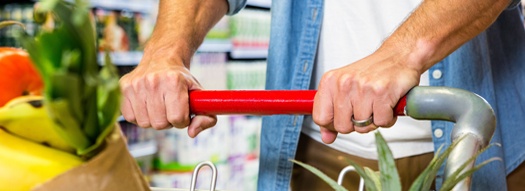
I am always edified and amazed when I discover another life-saving effort by the nonprofit community that FAMCare seeks to serve. I recently came upon a report on the creation of community grocery stores in Nonprofit Quarterly that I wanted to share with you all.
THE PROBLEM
Across the country, NQ reports, grocery stores serving rural and low-income areas are struggling and many are dying. Mega-grocery stores are abandoning their rural and low-income urban communities for wealthy city edges and suburbs. Wealthy areas have three times as many supermarkets as poor ones. And the disparity is even more pronounced when comparing racial makeup: White neighborhoods have four times as many grocery stores as African American communities. This exodus has left more that 2.3 million people to live in what could be called, food deserts. The US Department of Agriculture reports that 2.2% of all households do not own a car and live more than a mile from a supermarket. Without these business, residents lose access to fruits and vegetables and eat more processed fast food from the convenience stores that are left. This phenomenon is contributing to a serious nutrition shortfall and, at the same time, an obesity epidemic.
GOVERNMENT RECOGNITION
This loss of community grocery stores and its effects on rural America led six federal agencies to create an $800,000 initiative called, “Local Foods, Local Places”. Twenty-seven communities were selected for grocery store revitalization. Although well intentioned, this government effort is slow, cumbersome, and inadequate.
NON PROFIT TO THE RESCUE
In Waco, Texas, Mission Waco, a local nonprofit, is raising money to convert a vacant 6,500 square foot former Safeway into a community grocery store. It’s calling it the Jubilee Food Market and is selling shares of stock to stakeholders for as little as $25 in an attempt to raise about $450,000. Shareholders will receive quarterly reports and if they live in the 76707 area code will receive a club card entitling them to discounts on store purchases. You can read the article here: http://www.wacotrib.com/opinion/editorials/editorial-buying-stock-in-jubilee-food-market-celebrates-christian-societal/article_2fd418dd-ee56-5d80-a045-3c3d7394c43a.html
In Bowdon, North Dakota, residents came together to continue operating their grocery store after the store’s owner died. The tiny town surrounded by fields of soybeans, wheat, and corn would disappear from the map without its grocery store. The residents are running it as a membership club, like a Costco or a Sam’s Club, and they are keeping the store operating but the margins are tight.
The Lake Grocery in Willow Lake, South Dakota is described by the nonprofit organization running it as a leap of faith because their business plan was built on the belief that somehow a need will find a solution. So far, however, it is self-sufficient and seems to be working out quite well for the little remote community.
CONCLUSION
Hunger and malnutrition are a world-wide phenomenon that plague even wealthy countries like the United States. The cause, however, is not the scarcity of food, but the efficient distribution of food, especially to poverty stricken remote populations. Congratulations again to our nonprofit community for uncovering this need and working to find a solution.

